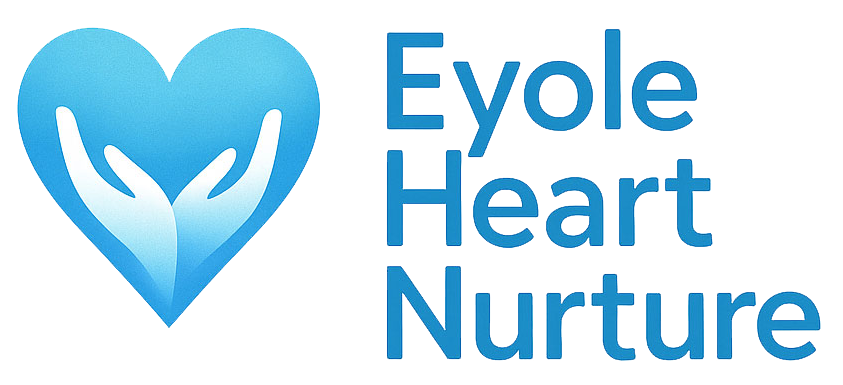David wakes each morning feeling a restless yearning deep inside, a hunger not for food but for what others have, the bigger house, the fancier car, the respect and admiration others seem to enjoy. Day by day, David’s heart grows heavy, not just emotionally but physically. Doctors call it hypertension, but David knows it’s more than that; it’s a heart weighed down by covetousness.
The Spiritual Weight That Presses on the Heart
Covetousness, or the relentless desire for what isn’t ours, is no mere thought; it is a spiritual force that hardens the heart. It’s like a thick armor that blocks joy, peace, and faith in God’s provision. The Bible warns us of this condition as a “heart trained in covetous practices” (2 Peter 2:14), a heart that learns to envy and demand rather than appreciate and trust.
David’s struggle is not unique. In today’s world, everywhere he looks, he is reminded of what he lacks. Advertisements shout, “You deserve more,” while social media broadcasts the highlight reels of others’ lives. This constant comparison feeds a toxic cycle within David, one that inflames not only his spirit but also strains his very physical heart.
When Spiritual Discontent Becomes Physical Strain
This spiritual unrest often manifests physically. Studies show that unrelenting stress caused by anxiety, envy, and dissatisfaction can elevate blood pressure, increase the risk of heart attacks, and contribute to chronic inflammation. David’s coveting mind, clouded with bitterness and greed, fuels stress hormones that pound against his artery walls; his heart literally fights to keep up.
Yet, this story doesn’t have to end in despair.
Healing Begins from Within
David’s turning point comes when he recognizes that chasing after “more” only leaves him empty and exhausted. He reads scripture reminding him to “take every thought captive to obey Christ” (2 Corinthians 10:5). Through prayer and self-examination, he begins to realign his heart toward gratitude and contentment.
Next Steps
David’s story is a call to all of us: When the heart craves more, it’s time to pause, reflect, and nurture it with what truly sustains: faith, gratitude, and the peace of being exactly where God has placed us. Take our free heart test at Eyole Heart Nurture today and begin your heart nourishment journey.
Frequently Asked Questions
What does the Bible say about covetousness?
The Bible consistently condemns covetousness as sin. It is explicitly forbidden in the Tenth Commandment: “You shall not covet your neighbor’s house… or anything that is your neighbor’s” (Exodus 20:17). Jesus and the apostles teach that covetousness begins in the heart and leads to many other sins, defiling a person (Mark 7:21-23; Romans 7:7).
What is the antidote to covetousness?
The antidote to covetousness is contentment, gratitude, and faith in God’s sufficiency. Scripture encourages believers to “keep your life free from the love of money, and be content with what you have” (Hebrews 13:5) and to “delight yourself in the Lord” (Psalm 37:4). Taking every thought captive to Christ helps combat covetous desires (2 Corinthians 10:5).
What are the signs of covetousness?
Signs of covetousness include constant comparison to others, envy, greed, dissatisfaction with one’s circumstances, and an excessive focus on material wealth or status. It often leads to bitterness and relational harm with others (James 4:1-3; Luke 12:15).
What is another name for covetousness?
Another name for covetousness is greed or avarice. It is the insatiable desire for more, especially for what belongs to others, and is often closely related to envy and selfishness (Bible topical studies).
How do you break covetousness?
Breaking covetousness involves daily self-examination, repentance, cultivating gratitude, prayer, and renewing focus on God. It requires taking thoughts captive to obey Christ and intentionally choosing contentment and trust over envy and desire (2 Corinthians 10:5; Philippians 4:11-13).
What is the cure for covetousness?
The cure for covetousness is spiritual discipline rooted in godliness with contentment. Pursuing a relationship with God, practicing gratitude, and focusing on eternal rather than temporal riches help heal covetousness (1 Timothy 6:6; Hebrews 13:5).
What are the prayer points against covetousness?
Prayer points against covetousness include asking God for contentment, humility, purity of heart, breaking the power of greed, a grateful spirit, trust in God’s provision, and deliverance from idolatry of possessions (Psalm 51; Philippians 4:6-7).
What is the difference between covetousness and jealousy?
Covetousness is the strong desire to have what belongs to someone else, often leading to sin. Jealousy is the emotional resentment or fear that someone else might take what you have. Covetousness is about wanting, while jealousy is about fearing loss or envying what others have (Bible commentaries).






Thanks for sharing. I read many of your blog posts, cool, your blog is very good.
I’m thrilled you’ve been reading through the blog posts and enjoying them.
Your support like this is what makes it all worthwhile. Which articles caught your eye the most, or what topics would you love to see next?
Keep exploring!